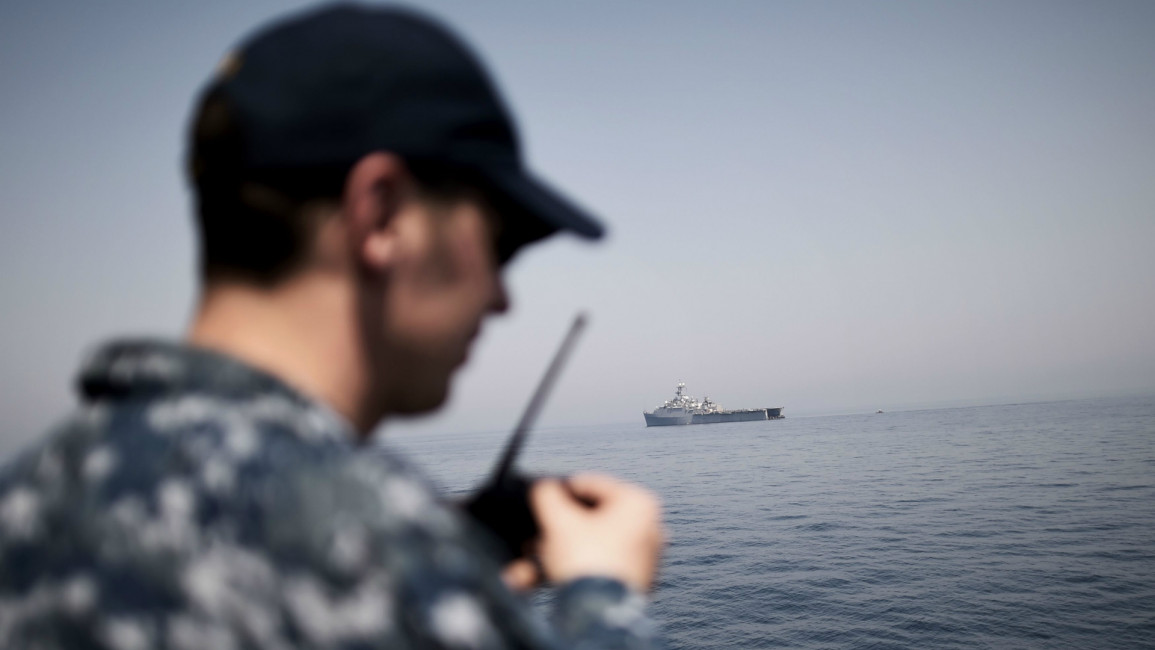Israel and US naval forces launch joint patrols in Red Sea to mark NAVCENT move
Israeli and US naval forces conducted joint maritime patrols in the Red Sea on Monday and Tuesday.
The operation marked Israel being officially shifted from the US European Command's area of responsibility to the US Navy's Central Command on Wednesday, a force that covers the Middle East and is based in Bahrain.
The US Navy said the move provides more opportunities for cooperation between Middle East naval forces, including Israel's.
Four Israeli and US naval vessels took part in the mission, beginning in the Gulf of Aqaba and sailing to the northeast of the Red Sea, bordering Saudi Arabia and Egypt, according to a press release by US Naval Forces Central Command (NAVCENT).
The convoy included the guided-missile cruiser USS Monterey (CG 61), an Israeli corvette, two patrol boats, and a US patrol aircraft.
Vice Admiral Brad Cooper, commander of NAVCENT, US 5th Fleet and Combined Maritime Forces, said the mission was intended to maintain security in the region.
"Our navies are ushering in a new era of expanded cooperation and capacity building," he said.
The Red Sea is a key shipping route for much of the world's oil exports and borders several Arab states including Egypt, Jordan, Saudi Arabia, Yemen, and Sudan.
Vessels in the Red Sea have been targeted by pirates from Somalia in the past and more recently Houthi rebels off the Yemen coast.
Vice Admiral Cooper said collaboration with other states for the patrol had "been tremendous" due to them sharing "a common understanding... that there is strength in unity".
The US 5th Fleet area of operations includes the Arabian Gulf, Gulf of Oman, and the Red Sea.
This covers critical choke points including the Strait of Hormuz, which links the Persian Gulf with the Gulf of Oman and the Arabian Sea. Oil tankers have been targeted by alleged Iranian mines, missiles and drones here over the past month.
It also includes the Suez Canal and Strait of Bab Al-Mandeb, which connects the Red Sea with the Gulf of Aden and the Indian Ocean and is HQ'd in Bahrain.
Israel has agreed to normalisation deals with several Arab states over the past year, including the UAE, Bahrain, Sudan and Morocco.
There has also been cooperation with other Arab countries such as Saudi Arabia which shares a common enmity with Iran.



